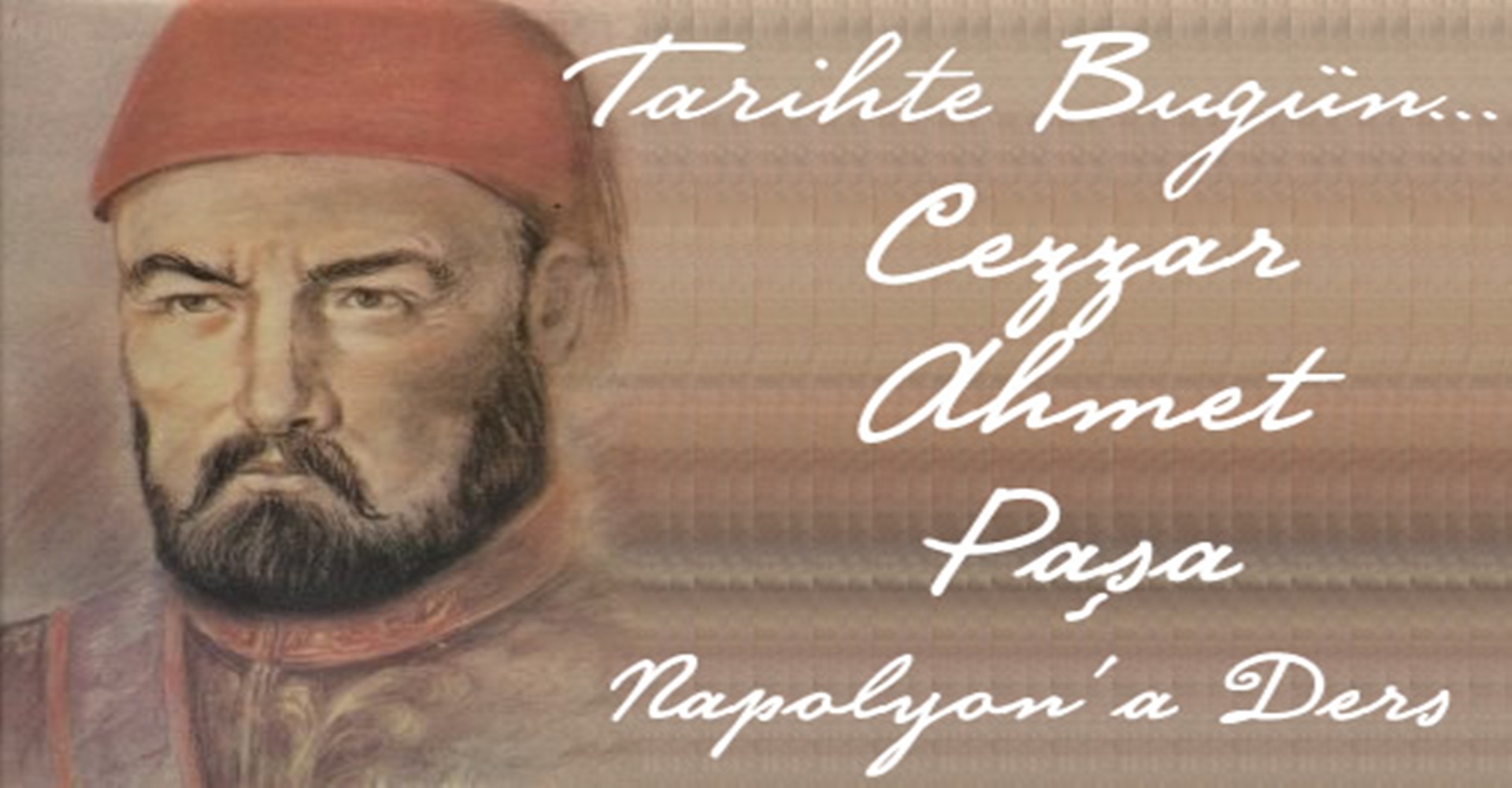Cezzar Ahmed Pasha (Cezzar Ahmet Pasha; Djezzar Pasha or Ahmed Pasha Jazar) (the exact date of birth is unknown but died in 1804) is the duke and governor of the cities and most famous fortresses of Akka.
Cezzar Ahmed-pasha was a Bosniak adventurer from Stolac (after Safvet-beg Bashagic, born in Fatnica, Bileća municipality), who became the strongest political figure in Syria in the last quarter of the 18th century. His greatest victory took place in 1799 when, from his fortress in the city of Aki, he stopped the advance of Napoleon Bonaparte. Ahmed left his native Bosnia and, like many other Bosniak youths, set out to seek his fortune in Egypt, where riches and opportunities abounded during that time. He got a job in Egypt as a hired gunman in the Bulutkapan Ali Bega household in the 1760s. In this role, he was ruthless with the Bedouins of the Libyan desert who were in rebellion during the tax levies imposed on him by his boss, Ali Beg. The Bedouins were the ones who gave him his nickname, Cezzar ie Jazzar (butcher or camel-camel), for the execution of dozens of Bedouin tribes who rebelled against their governor Ali Beg.
In the political vacuum that followed the death of Zahir el-Omer in 1775, the leader of the Ziyad clan that then dominated what is now northern Israel for almost half a century, Cezzar Ahmed succeeded in sulking Sultan Abdülhamid I (R. 1774 – 1789). which he succeeded in re-imposing on the Sultan’s authority in the port city of Aki. In 1777 he was awarded the title of Governor of the Lebanese province of Sidon, and remained in this position until his death. Although the authorities in Istanbul feared him and believed that his ultimate goal was to establish his independence from the empire, as his former master did in Egypt, Cezzar Ahmed managed to secure the position of governor of Damascus in several different periods, his longest career in that position he lasted from 1790 to 1795.
Through his ability to defeat the rebellious Druze Shia clan in southern Lebanon, and provide local security and enable a smooth tax flow in Istanbul, Cezzar Ahmed simply made the most good for Istanbul during his administration, which would later prove to be a crucial factor in his progress and development. Nevertheless, the Ottoman Government remained vigilant and tried to remove it from all levers of power whenever possible. Feeling his vulnerability, Cezzar Ahmed decided to remain in the strong fortress of Aki even when he was declared governor of Damascus, without taking up permanent residence in that city, ie. Damascus.
In a century when locally prominent Ayyans have dominated Syrian politics, Cezzar Ahmed, as a flawless outsider, as a non-Arab, without a large extended family to support him, has managed to keep himself in power. Having lived in Egypt and profiled himself through the ranks in the Mameluk household, he managed to put himself under his own power and to have a good relationship with his own mammals in Aki, who remained subordinate to him and under his direct command, while occasionally managing Tire and Tripoli. Learning from the mistakes of Zahir al-Omer, Cezzar Ahmed realized that he would maintain power if he was in good graces with the Sultan and his court. Its two main rivals for the governance of southern Syria are the al-AZM families, whose members are often filled with the seats of the governor of Damascus, the Shihab family in the Lebanese mountains. his wealth and the phalanges of his engaged people.
Cezzar Ahmed gained his moment of glory in the international public in 1799 when he was able to withstand the siege of Aca by Napoleon Bonaparte, admittedly with the help of an outbreak of a plague that decimated the French ranks. A great role in the defense of Aka, Ahmet Dzhezir Pasha was given by Haim Farhi, a Jew, vizier of the city of Aka who, together with Ahmed Cezzar Pasha, led the army against Napoleon Bonaparte. Napoleon’s forces had very quickly defeated the Mamluks in Egypt the year before, and the French general had the idea that the Ottoman Empire would give shade more resistance than the Egyptian Memluks. But Cezzar Ahmed stubbornly refused to surrender. In addition, the British Navy inflicted suffering at sea on Napoleon’s forces and thus harassed them in the eastern Mediterranean, Napoleon was forced to reconsider his plans for the conquest of the Middle East to eventually return to Egypt with his army. Napoleon left shortly after triumphantly attacked Syria and returned to Egypt, but his forces remained in occupying Egypt until 1801, when the combined actions of the British-Ottoman army triumphed over Napoleon’s surrender.
(Picture of the siege of Aka, the most famous fort whose walls were defended by Bšnjak Ahmed Cezzar Pasha in 1799 by Napoleon Bonaparte.)
Today in Aki, there is the Vakuf Ahmed Cezzar Pasha and the central mosque and the Order of the city of Aka in memory of Ahmed Cezzar Pasha and many references to that distant 1799 year. The cannon used in the defense of Aka in 1799 is a memorial detail to that battle for Aka between Ahmed Cezzar Pasha and Napoleon Bonaparte, and the city is full of details from that period.
sandzakhaber.net / balkantimes.press
Napomena o autorskim pravima: Dozvoljeno preuzimanje sadržaja isključivo uz navođenje linka prema stranici našeg portala sa koje je sadržaj preuzet. Stavovi izraženi u ovom tekstu autorovi su i ne odražavaju nužno uredničku politiku The Balkantimes Press.
Copyright Notice: It is allowed to download the content only by providing a link to the page of our portal from which the content was downloaded. The views expressed in this text are those of the authors and do not necessarily reflect the editorial policies of The Balkantimes Press.


